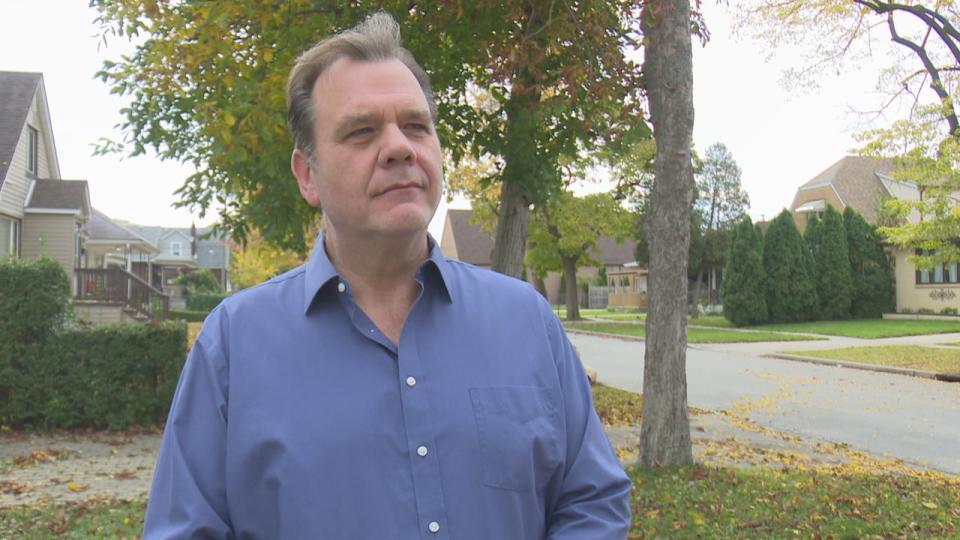Windsor nurses protest pay, staffing conditions in long-term care ahead of contract talks

Long-term care nurses in Windsor say burnout, staffing levels and less-than-competitive wages mean people are leaving the field — and they say it means delays for patients.
They took to a picket line in Windsor on Friday, part of a province-wide picket in protest of health-care conditions and funding. The demonstration took place ahead of contract talks for about 3,000 Ontario Nurses' Association' members who work in the long-term care sector.
"With the lack of staffing because of poor wages, because we're not comparable to hospital, the nurses are going [elsewhere]," said Irene Aguiar, a registered nurse at a Windsor long-term care home.
"They're going to hospitals, they're going to the states and they're not staying in long-term care, and that's where we need nurses right now."
It means delayed care for patients, said registered nurse Monique Forshaw.
"If you have a resident presenting with an acute condition and you're taking care of five or six other sick residents at the same time, there's only one nurse to go and assess those residents," she said. "That nurse might be busy with another resident for an hour or 45 minutes getting them transferred to hospital."
"So there's a delay. There's a delay in care."
The Ontario Nurses' Association said in a statement its two top issues going into contract talks are staffing ratios and pay equity with nurses in hospital settings.
The picket took place at Extendicare Southwood Lakes.
In a statement, the company thanked their team members for their dedication.
"We respect the union's right to organize and demonstrate, and as a regular practice, we maintain ongoing dialogue with our union partners, on any issues of concern to their members," a spokesperson said via email.
"When negotiations commence, we will discuss and productively negotiate with ONA representatives directly, in service of their members."

Patrick Hannon is co-chair of the Windsor-Essex Health Coalition. (Dale Molnar/CBC)
And a spokesperson for the Ministry of Long-Term care said there have been "historic" investments.
"The Ministry of Long-Term Care is responsible for the overall funding of the Long-Term Care sector, including municipal and not for profit homes, which has seen a historic investment of $4.9 billion to support our government's commitment to providing the care people deserve and expect," said Daniel Strauss.
Patrick Hannon is the co-chair of the Windsor-Essex Health Coalition.
He says nurses have been facing undue pressure since before the pandemic — but under-funding in hospitals and long-term care isn't helping.
Distance from families adds extra burden
"Staff are burned out, they're leaving for other vocations, not not even still in health care, leaving to do other things," he said.
Hannon noted provincial legislation that allows patients to be moved out of hospital and into a long-term care bed not of their choice of a distance up to 70 kilometres away from their home — or 150 kilometres if they're in northern Ontario.
"When people are pushed into long-term care homes that are beyond the reach of their immediate family and friends in their local area, there is no one else to help care for them," he said. "One of the band aids…is that there were family and friends available to go and help care for their loved one in the long-term care home.
"But when you're pushing them 50, 100 kilometeres away, then even that small measure is removed and that's putting additional pressure on the nurses."

